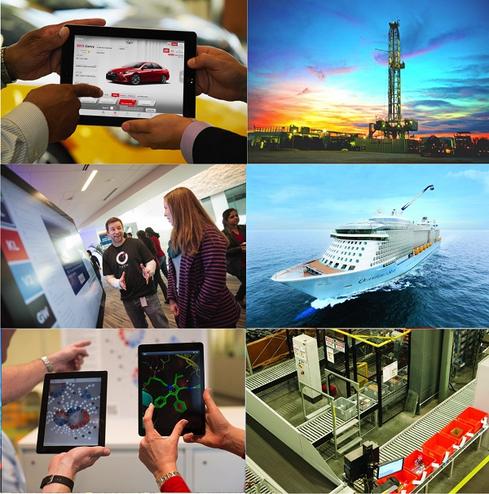Google Automated Car Accidents: Not Our Fault
Self-driving cars have been involved in several accidents, but the blame appears to belong to other drivers.


20 Great Ideas To Steal In 2015
20 Great Ideas To Steal In 2015 (Click image for larger view and slideshow.)
Google's fleet of more than 20 self-driving cars has driven 1.7 million miles in the past six years -- manually and autonomously. These vehicles have been involved in 11 minor accidents during that period, said Chris Urmson, director of Google's self-driving car project, in an op-ed post on Monday.
According to Google, none of those accidents can be attributed to the company's technology, which has been touted as a way to make driving less dangerous.
"Safety is our highest priority," a Google spokesperson said in an emailed statement. "Since the start of our program six years ago, we've driven nearly a million miles autonomously, on both freeways and city streets, and the self-driving car hasn't caused a single accident."
In other words, people can't help driving into Google's cars. As Urmson notes in his post, 94% of crashes happened as a result of driver error.
In an endorsement of automated vehicle technology, the Insurance Institute for Highway Safety (IIHS) in 2010 estimated that if every vehicle had collision avoidance, lane-keeping, blind-spot, and adaptive headlight systems, almost a third of crashes and accident deaths could be avoided.
The accidents involving Google's self-driving cars have not resulted in any injuries and have led to only minor vehicle damage, according to the company.
Based on IIHS statistics, there were 3,000 deaths in California in 2013, which translates into a death rate of 0.93 per million vehicle miles travelled. Though Google's almost two dozen self-driving cars haven't logged enough miles to present a valid statistical picture of fatalities, the initial data suggests the company's self-driving cars, with no injuries in 1.7 million miles, have a better safety record than manually controlled vehicles.
[Is your mobile strategy broad enough? Read Enterprise Mobile Strategy, Meet The Connected Toilet.]
Google addressed the issue following an AP report that said four of the almost 50 self-driving cars in California have been involved in accidents since the state began issuing testing licenses for autonomous vehicles in September. Two of those cars belong to Google.
The AP obtained some information from the California DMV, which is limited in the details it can provide under state law. The absence of official accident reports means that the public has no option but to rely on Google's account of what happened.
According to the AP, Google's 11 accidents work out to an accident rate of 0.6 per 100,000 miles driven, about twice the rate cited by the National Highway Traffic Safety Administration. But more than half of minor accidents go unreported, according to NHTSA's estimate, making accurate statistical comparisons difficult.
A 2014 RAND report predicts that automated vehicle technology will be adopted because it's safer than manual control, but cautions that manufacturers may delay the rollout of autonomous systems until the liability issues get settled. (That is, who should pay when a car controlled by a computer crashes?)
[Did you miss any of the InformationWeek Conference in Las Vegas last month? Don't worry: We have you covered. Check out what our speakers had to say and see tweets from the show. Let's keep the conversation going.]
About the Author
You May Also Like






